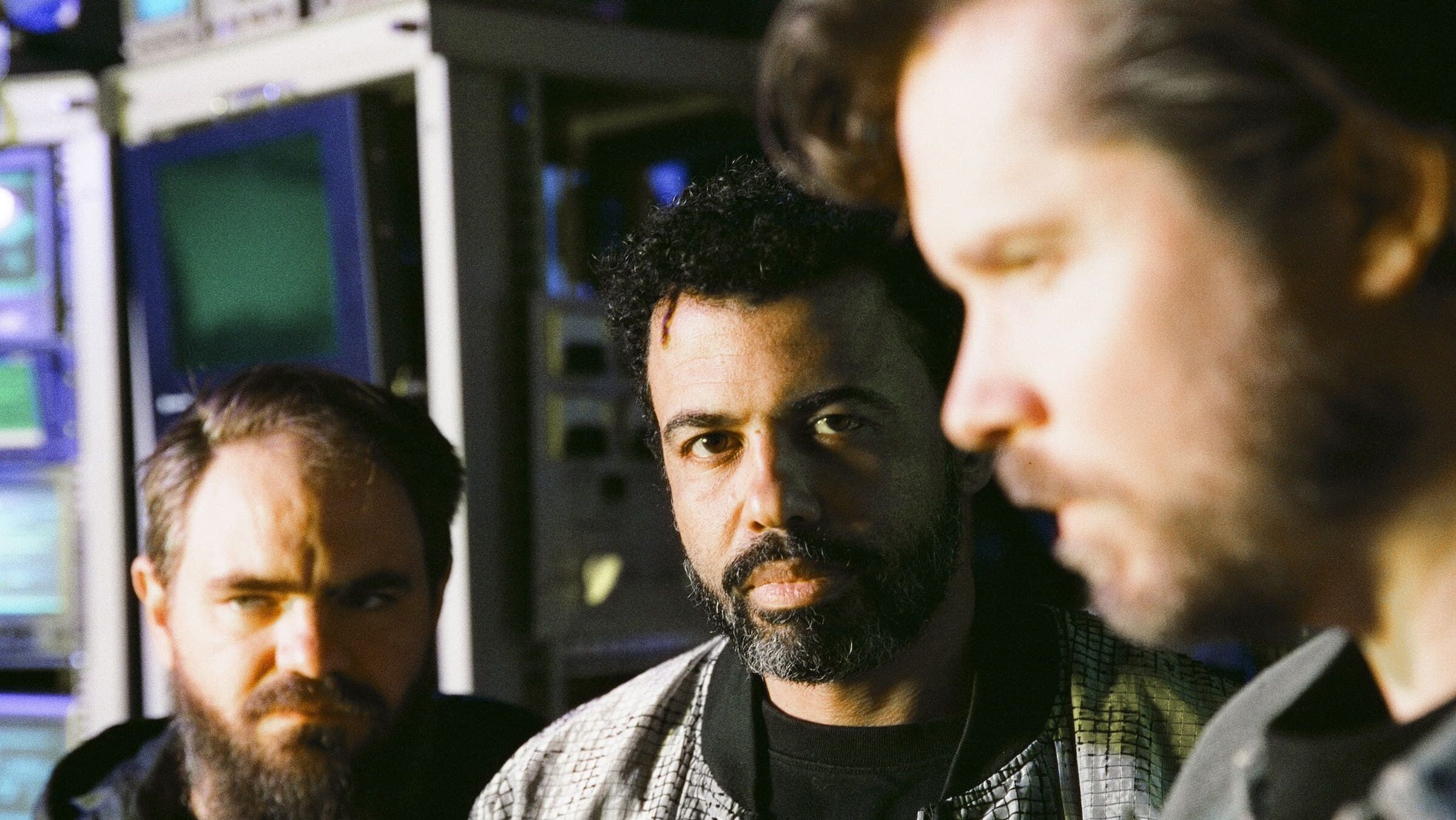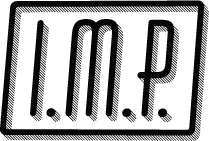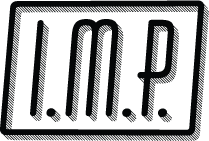
clipping.
Open Mike Eagle
Add to Calendar
Tickets are non-transferable until 72 hours prior to the show time. Any tickets suspected of being purchased for the sole purpose of reselling can be cancelled at the discretion of 9:30 Club / Ticketmaster, and buyers may be denied future ticket purchases for I.M.P. shows. Opening acts, door times, and set times are always subject to change.
clipping.

Clipping (Daveed Diggs, William Hutson, and Jonathan Snipes) are very story-oriented. They deal in ontology and narrative as much as beats and rhymes. Across six albums, along with countless singles, remixes, and collaborations, Clipping has been approaching making music like writing science fiction since the band’s conception. Two of their records have been nominated for Hugo Awards (one of science fiction’s top literary prizes), and a novella spun-off from their music was nominated for a third. As Clipping, they’ve collaborated with as many of their fellow experimental noise artists as they have fellow rappers.
While their last few projects have been record-long concepts like the classic prog rock of old, new album Dead Channel Sky is mixtape-like, a carefully curated collection of songs in which every track is a love letter to a possible present. Like a mashup of distinct elements, the overall concept is there, but the result is brief glimpses into a world rather than an overview of it. It sounds crisp and classic at the same time. When something strikes us as retrospective and futuristic at the same time, it’s a reminder of how slipshod our present moment truly is
On Dead Channel Sky, Clipping texture-map the twin histories of hip-hop and cyberpunk onto an alternate present where Rammellzee and Bambaataa are the superheroes of old; where Cybotron and Mantronix are the reigning legends; where Egyptian Lover and Freestyle, are debated endlessly, and Ultramag and Public Enemy are the undeniable forefathers; where the lost movements of 1980s and the 1990s are still happening: rave, trip-hop, hip-house, acid house, drum & bass, big beat—the detritus of a different timeline, the survivors of armed audio warfare. That war at thirty-three and a third, its atrocities imprinted upon yet another generation, what someone once called, “the presence of the significance of things” without a hint of ambiguity.
Open Mike Eagle

Open Mike Eagle found comedy in contemporary American horrors on albums like 2014’s Dark Comedy and catharsis in exposing his past on 2020’s Anime, Trauma, and Divorce. Now, the incisive, hilarious, and idiosyncratic purveyor of art rap praised by The New York Times, Pitchfork, and The New Yorker manipulates time like Dr. Strange on his new album, Component System with the Auto Reverse. Eagle’s eighth solo LP, CSWTAR is grounded in our dystopian present but structured with the magical randomness of cassette mixtapes he made recording college rap radio shows in the late ’90s. It was an era of supreme braggadocio and countless lyrical styles, the lines between boasts offering insight into Black American neighborhoods. Eagle made CSWTAR in this spirit. Unstuck in time, he spits his sharpest stream-of-consciousness darts while watching his younger self bop to the music that informed them. No two songs traverse the same ground, but Eagle splices in actual commercials and radio interviews from his old mixtapes to connect the dots, his keen sociopolitical analysis and obscure pop culture allusions serving as temporal poles. In the same breath, he airs grievances about current police corruption and alludes to long-retired Chicago Bulls players. Every anachronism provides a new perspective on today. Keeping with the purposeful surprise and structure, CSWTAR is scored by crashing doom-filled hard rock flips from Madlib, Diamond D’s thumping jazz-inflected boom-bap, twisted cartoon-sampled suites via Quelle Chris, and more progressive production. Eagle turns these disparate sounds into a cohesive whole, equally at home rhyming on minimalist electronic soundscapes and parodying an animated stereo store proprietor over thundering drums and grinding guitar. A master of his vocal range, he effortlessly moves in and out of conversational and intricate technical delivery, inflecting with abandon and assurance before pivoting to half-sung hooks. There are more time-bending spells in Eagle’s grimoire, but he’s never shown listeners so many so effectively. Though Eagle has worked in podcasts, comedy, and TV, he is first a member of the loosely-affiliated independent rap scene that includes the rappers featured on CSWTAR: Armand Hammer, R.A.P Ferreira, Aesop Rock, Serengeti, Diamond D, Video Dave, and Still Rift. Part solo album and spiritual mixtape, part green room cipher, and part showcase for Eagle’s Auto Reverse Records, CSWTAR recontextualizes his place among his peers. With every original metaphor and stylistic flourish, he asserts his place in the pantheon of great rappers from his hometown of Chicago (“79th and Stony Island”) and among the avant-garde heavyweights in his adopted home of Los Angeles (“Crenshaw and Homeland”). CSWTAR is also a response to the rest of Eagle’s catalog. He forsakes much of the whimsy and comedy of many previous albums for unflinching and unironic directness. A testament to the determination necessary to thrive in indie rap (“I’ll Fight You”) plays before his touching tribute to the late MF DOOM (“For DOOM”). He articulates the stir-crazed mania and malaise of the pandemic in “Peak Lockdown Raps,” while “I Retired Then I Changed My Mind” is a calculated analysis of career missteps and a lament for his canceled Comedy Central show, The New Negroes. As that wound closes, Eagle is recording albums like CSWTAR, producing acclaimed podcasts, and focusing on his next trick: survival.
9:30 Club
815 V St. NW
Washington, DC, 20001











